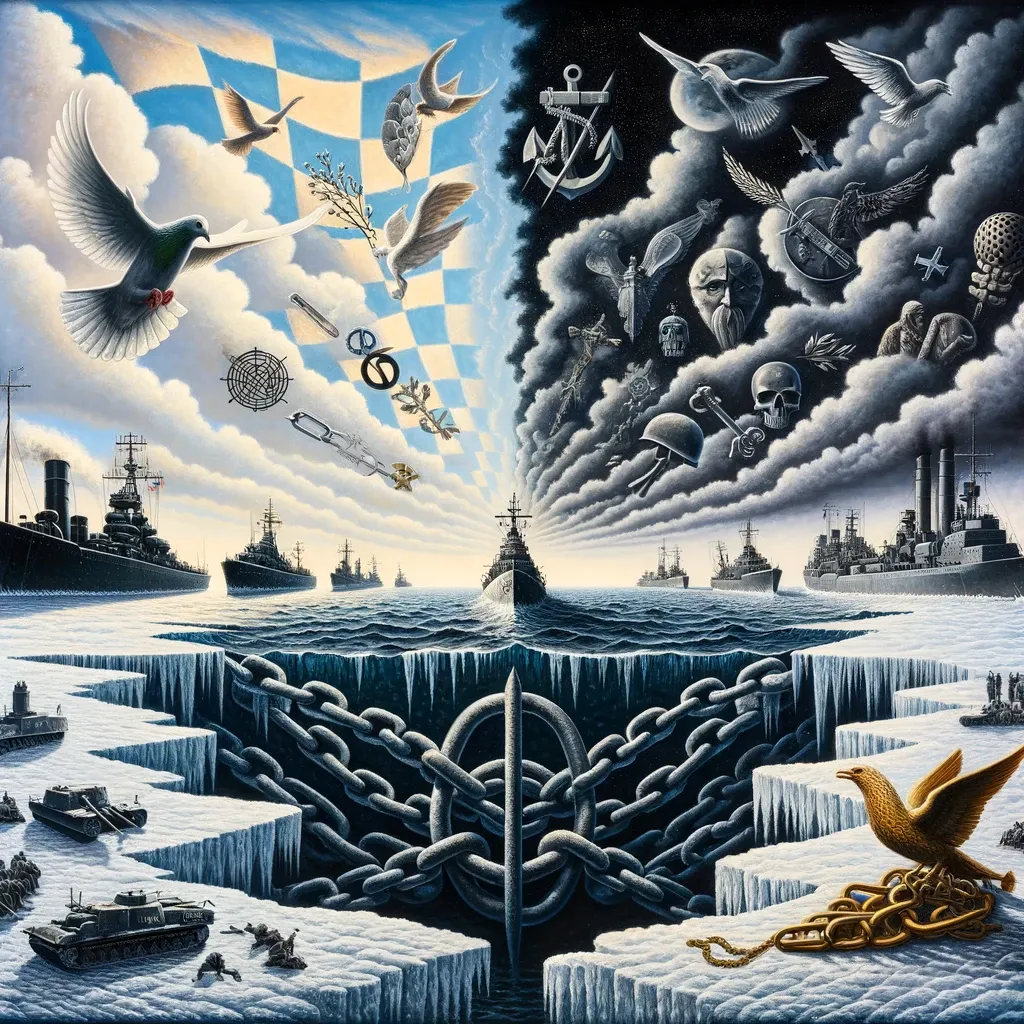The Baltic Sea's New Cold Front: Economic Confrontations and Shifting Alliances
In recent years, the Baltic Sea region has emerged as a critical flashpoint in the growing tensions between Russia and the West. Historically characterized by low confrontation during the Cold War and a subsequent era of cooperative development, this region now faces a starkly different reality. The shift was marked

In recent years, the Baltic Sea region has emerged as a critical flashpoint in the growing tensions between Russia and the West. Historically characterized by low confrontation during the Cold War and a subsequent era of cooperative development, this region now faces a starkly different reality. The shift was marked by Finland's NATO membership and Sweden's application to join, aligning almost all Baltic Sea nations with Western associations like NATO and the EU, excluding Russia.
The nature of Russia's conflicts with Sweden and Finland, though less acute than with Ukraine, signifies a departure from their previously non-aligned policies. The divergence in international stances, especially regarding Ukraine, is increasingly evident. The West's significant support for Ukraine in political, economic, and military aspects starkly contrasts with Russia's position, highlighting the deepening rift.
This confrontation is most intense in the economic realm. Baltic Sea countries within the EU not only endorse sanctions against Russia but often adopt the strictest stances. These countries have independently implemented restrictive measures impacting Russian official structures, businesses, and even ordinary citizens. The fallout includes a drastic reduction in trade, economic relations, and the suspension of many cooperative initiatives. Humanitarian cooperation, once thriving in culture, science, education, sports, and tourism, has now significantly diminished, exemplifying the deteriorating relationship.
The transformation in the regional atmosphere is noteworthy. Where once goodwill and trust prevailed, now suspicion, distrust, and hostility are rampant. The Baltic Sea region, once a zone of mutual benefit, now mirrors the Cold War's Central European divide, with Russia on one side and Western countries on the other. This resemblance raises concerns about potential escalations and the region's impact in the event of intensifying military operations in Ukraine. Additionally, the Arctic's stability is also a factor, with its potential deterioration impacting the Baltic region.
The West's strategy to make the Baltic Sea an "internal sea of the EU and NATO" mainly focuses on economic pressure, continuing the trend of a "war of attrition." This approach includes various tactics beyond sanctions and restrictions, as demonstrated by the Nord Stream 2 pipeline incident. Challenges for Russian shipping in the Baltic Sea and Danish Straits are anticipated, though a complete blockade seems unlikely. The situation with Kaliningrad, potentially echoing West Berlin's status in the 1950s-60s, highlights the strategic complexities in the region.
Amidst NATO expansion and US military agreements with Sweden and Finland, an increased military presence in the region is probable, although nuclear deployment seems off the table for now. Russia, in response, is bolstering its military capabilities in the northwest. While increased military tension is inevitable, lessons from the Cold War suggest potential for regulation and avoidance of direct conflict. However, the unpredictability and less structured nature of current agreements compared to the Cold War era pose higher risks of crisis.
A unique aspect of the current Russia-West confrontation is the prevailing escalation without periods of détente, as seen during the Cold War. A resolution seems distant, contingent on the end of hostilities in Ukraine. The path to settlement, unlike historical precedents like the Congress of Vienna or the Yalta and Potsdam meetings, will likely involve a series of staggered, independent agreements, each addressing specific issues. As noted by German political scientist Alexander Rahr, the Baltic Sea region could be the starting point for normalizing Russia's relations with European states and associations. While this is a future consideration, it remains an essential aspect of the evolving geopolitical landscape in the Baltic Sea region.




